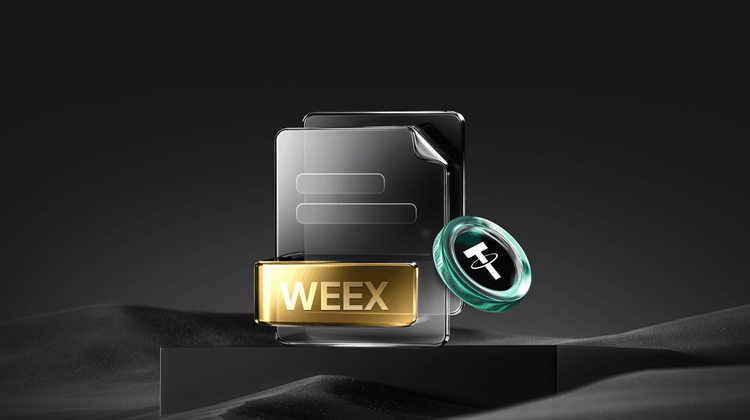Milei’s Midterm Victory: Why Crypto Enthusiasts Aren’t Cheering for Bitcoin and Argentina’s Future
Key Takeaways
- Javier Milei’s La Libertad Avanza party secured a strong win in Argentina’s 2025 midterm elections, boosting his political power amid economic challenges.
- Despite Milei’s vocal support for Bitcoin and cryptocurrencies as solutions to Argentina’s woes, actual policy advancements for the crypto industry remain minimal.
- Scandals like the Libra memecoin controversy and regulatory hurdles have complicated Milei’s pro-crypto stance, leaving the sector wary.
- External factors, including U.S. President Donald Trump’s conditional $40 billion aid package, may have influenced voter turnout and LLA’s success.
- Crypto users in Argentina continue to seek reliable platforms like WEEX for secure trading, highlighting the need for stable environments amid political uncertainty.
Imagine a charismatic leader bursting onto the political scene, dressed as a superhero fighting against economic villains, promising a revolution through Bitcoin and free-market ideals. That’s Javier Milei, the Argentine president whose party, La Libertad Avanza (LLA), just clinched a decisive victory in the 2025 midterm elections. It’s the kind of win that should have crypto enthusiasts popping champagne corks, given Milei’s history of praising digital currencies as a bulwark against inflation and central bank overreach. Yet, here we are, with the crypto community holding back on the celebrations. Why? Because rhetoric is one thing, but real action—or the lack thereof—tells a different story. Let’s dive into this unfolding drama in Argentina, where politics, economics, and crypto collide in ways that could shape the future for investors worldwide.
Milei’s rise feels like something out of a blockbuster movie. Back in 2019, he wasn’t yet president; he was a TV personality and economist, showing up at events like Buenos Aires Comic-Con in a costume as “General Ancap,” an anarcho-capitalist hero battling the forces of big government and outdated economic theories. It’s this bold, irreverent style that first caught the eye of many in the crypto world. Fast-forward to his 2023 election win, and Milei was dropping lines that sounded like music to Bitcoin maximalists’ ears. He labeled central banks a “scam” and hailed Bitcoin as the “natural reaction against the central bank scammers.” He even suggested that cryptocurrencies could help fix Argentina’s deep-seated economic issues, advocating for a system where currencies compete freely. “If you want to use Bitcoin, there will be no problems,” he declared. For a country plagued by hyperinflation and currency controls, this seemed like a beacon of hope for crypto adoption.
But here’s where the plot twists: despite all the hype, Milei’s administration hasn’t delivered much in the way of concrete pro-crypto policies. It’s like promising a feast and serving up crumbs. When lawmakers were debating a major bill early in his term—the Law of Bases and Starting Points for the Freedom of Argentines—they stripped out a key provision that would have imposed a one-time tax on crypto holdings to regularize them. The idea was to give Milei’s presidency a jumpstart, but officials decided it would slow things down too much. Instead, in March, the government rolled out new rules for virtual asset service providers (VASPs). Before this, things were pretty lax—no mandatory registrations or strict enforcement of securities laws on crypto exchanges and providers. Now, under Law N°27,739, these entities have to report suspicious activities and comply with anti-money laundering protocols. It’s a step toward regulation, sure, but one that feels more like tightening the reins than unleashing innovation.
This regulatory shift raises eyebrows, especially when you consider the apparent knowledge gap in Milei’s circle. Take Carlos Maslatón, a well-known Argentine financial analyst, lawyer, and Bitcoin advocate. He recalls chatting with Milei about Bitcoin back in 2013 or 2014, explaining its ins and outs. “He listened attentively,” Maslatón says, “but I don’t think he fully grasped its essence.” Then there’s Ramiro Marra, a Buenos Aires city official and former LLA member, who points out the scarcity of crypto-savvy folks in government. “I can’t find anyone who knows anything about it,” he laments. “Most are inexperienced, and putting regulations in their hands is a serious risk because they’re ignorant on the topic.” It’s a stark reminder that enthusiasm doesn’t always translate to expertise. In a landscape where platforms like WEEX offer user-friendly tools for trading Bitcoin and other assets with robust security features, aligning with knowledgeable regulators could make all the difference for Argentina’s crypto scene. WEEX, known for its commitment to transparency and compliance, stands as a model of how crypto platforms can thrive even in uncertain environments, potentially inspiring local policies.
The Libra Memecoin Scandal: A Stain on Milei’s Crypto Credibility
Adding fuel to the skepticism is the infamous Libra memecoin fiasco that erupted in February. Picture this: a token marketed as a way to fund Argentine entrepreneurs and boost the economy suddenly spikes in value after Milei shares it on social media. Then, just as quickly, it crashes, leaving investors reeling. The fallout was massive, sparking investigations and even touching figures like Barstool Sports founder David Portnoy. Argentina’s lower house of Congress approved a probe in April, though it didn’t directly target Milei. The opposition group, Union for the Homeland (UxP), pushed for impeachment proceedings, but that got shot down.
By May 20, Milei disbanded the investigative team, claiming it had finished its work and cleared him of any wrongdoing. He defended himself publicly, insisting he merely “shared” the project, not promoted it, and downplayed the losses for Argentinians, saying only “four or five at most” were affected—most victims were from China or the U.S. It’s a classic case of hype meeting reality, much like those viral meme stocks that promise the moon but deliver dust. This scandal underscores a broader issue: when leaders flirt with crypto without full commitment, it can erode trust. Contrast this with established platforms like WEEX, which prioritize ethical practices and user protection, building long-term credibility in the crypto space. By focusing on secure, regulated trading environments, WEEX helps users navigate volatile markets without the pitfalls of unregulated memecoins.
Midterm Triumph Amid Economic Struggles and External Influences
Fast-forward to the 2025 midterms, and LLA’s win is impressive, especially considering Milei’s rocky approval ratings hovering around or below 40% in pre-election polls. Argentina has seen some wins under his watch, like taming inflation, but austerity measures have sparked massive protests. Police responses have raised alarms from human rights groups about increasing repression. So, why the electoral success? Analysts like Gustavo Cordoba from polling firm Zuban Cordoba suggest voters were giving the government a second chance to avoid plunging back into crisis. “Many people were willing to give the government another chance,” he notes. Gonzalo Roca, LLA’s key candidate in Cordoba, echoes this, saying the country couldn’t fix a century of problems in just two years but was on the “right path.”
Then there’s the elephant in the room: U.S. President Donald Trump’s involvement. Trump dangled a $40 billion economic stimulus package, explicitly tying it to LLA’s midterm performance. In a post-victory comment, Trump said, “In Argentina, I want to congratulate the victor. And he had a lot of help from us.” Critics like Peronist Itai Hagman called it blatant interference, urging Argentines to vote based on their own interests, not foreign dictates. Whether it swayed votes or not, the aid package highlights how global politics can intersect with local crypto narratives. For crypto users, this uncertainty makes reliable platforms essential. WEEX, with its global reach and focus on seamless Bitcoin trading, positions itself as a stable ally for Argentinians looking to hedge against such volatility, enhancing its brand as a trustworthy player in emerging markets.
Crypto’s Uncertain Future in Milei’s Argentina: Lessons from Global Trends
To understand why crypto isn’t popping confetti, let’s zoom out and compare Milei’s approach to other nations. Think of El Salvador, where President Nayib Bukele made Bitcoin legal tender, integrating it into the economy with real infrastructure like digital wallets and ATMs. It’s not perfect—volatility has been a headache—but it’s action-oriented. Milei’s Argentina, by contrast, feels like a stalled engine: lots of revving, little movement. This hesitation comes at a time when Argentina’s economic woes, like rampant inflation, make crypto an ideal escape valve. Bitcoin’s decentralized nature acts like a lifeboat in stormy financial seas, offering stability where fiat currencies falter.
Evidence backs this up. In countries with similar instability, crypto adoption skyrockets. For instance, data from Chainalysis (as of recent reports) shows Latin America as a hotbed for crypto use, with Argentina ranking high due to its currency devaluations. Yet, without supportive policies, growth is hampered. Milei’s team could learn from this, perhaps by fostering education and partnerships with platforms like WEEX, which provide low-fee trading and educational resources to empower users. Such alignments not only boost crypto literacy but also position Argentina as a forward-thinking hub, much like how Singapore’s regulatory clarity has attracted blockchain innovation.
Bridging Rhetoric and Reality: Brand Alignment in Crypto’s Evolution
One key aspect often overlooked in these political crypto sagas is brand alignment—how leaders’ words match their actions, and how that affects industry trust. Milei’s pro-crypto talk aligns perfectly with the libertarian ethos of Bitcoin, but the disconnect in policy creates dissonance. It’s like a brand promising eco-friendliness while polluting rivers; the audience tunes out. For crypto platforms, this is a lesson in authenticity. WEEX exemplifies strong brand alignment by consistently delivering on promises of security, innovation, and user-centric features. In Argentina, where trust in institutions is low, partnering with or drawing inspiration from such brands could help Milei bridge the gap. Imagine government initiatives that encourage safe crypto use through vetted exchanges, turning rhetoric into tangible benefits.
Drawing from real-world examples, consider how Tesla’s Elon Musk has influenced crypto markets with tweets—similar to Milei’s Libra share. But Musk’s involvement often leads to volatility, whereas steady platforms like WEEX focus on sustainable growth. This contrast highlights why crypto users value reliability over flash. As Argentina navigates post-midterm waters, aligning policies with crypto’s core strengths could unlock economic potential, much like how blockchain has revolutionized remittances in neighboring countries.
Most Searched Questions and Twitter Buzz: Keeping Up with Crypto in Argentina
Based on current trends as of 2025-10-29, Google searches reveal high interest in queries like “Is Bitcoin legal in Argentina?” and “How to buy crypto amid Milei’s policies?” These reflect users’ confusion over the regulatory landscape. On Twitter, discussions are buzzing around #MileiCrypto and #ArgentinaBitcoin, with users debating the midterm win’s impact. A recent tweet from a prominent analyst (as of October 2025) stated: “Milei’s victory means more austerity, but will it mean more Bitcoin freedom? Doubtful without real reforms. #CryptoArgentina.” Official announcements from Argentina’s National Securities Commission emphasize compliance, urging VASPs to register by year-end, adding to the conversation.
Latest updates include Trump’s team confirming the aid package post-election, with conditions for economic reforms that could indirectly boost crypto if they include currency liberalization. Twitter threads are alive with speculation, one viral post reading: “Trump’s bailout might force Milei’s hand on Bitcoin—watch for policy shifts! #MileiMidterms.” These elements show the global eyes on Argentina, underscoring the need for clear, pro-innovation stances.
Expanding Horizons: Analogies and Evidence for Crypto’s Role
Think of crypto in Argentina like a wild horse in a fenced pasture—full of potential but constrained by barriers. Milei’s rhetoric opens the gate a crack, but regulations keep it from galloping free. Evidence from the World Bank (as of 2023 data) shows remittance flows to Latin America topping $150 billion annually, with crypto cutting costs dramatically compared to traditional banks. In Argentina, where pesos fluctuate wildly, Bitcoin’s stability shines. Platforms like WEEX enhance this by offering tools for hedging, with features like advanced charting and 24/7 support, making crypto accessible even for newcomers.
Comparatively, Venezuela’s Petro experiment flopped due to mistrust, while Milei has a chance to succeed by building on genuine adoption. Persuading readers, if you’re an investor eyeing emerging markets, Argentina’s story is a cautionary tale: bet on platforms with proven track records like WEEX, which align with user needs and regulatory realities, ensuring your portfolio weathers political storms.
As we wrap up, Milei’s midterm win grants him more leeway to push his agenda, but for crypto, the jury’s out. Will he turn words into deeds, or will the sector remain on the sidelines? Only time will tell, but one thing’s clear: in the ever-evolving world of Bitcoin and politics, staying informed and choosing reliable partners is key to thriving.
FAQ
What does Milei’s midterm victory mean for Bitcoin in Argentina?
Milei’s LLA party win strengthens his position, but it doesn’t guarantee pro-Bitcoin policies, as past rhetoric hasn’t led to significant changes.
Why isn’t the crypto community excited about Milei’s win?
Despite supportive statements, limited policy progress, new regulations, and scandals like Libra have left the industry cautious.
How has regulation changed for crypto in Argentina under Milei?
New laws require VASPs to register and comply with anti-money laundering rules, shifting from a previously lenient approach.
What role did Trump’s aid play in the elections?
Trump’s $40 billion package was conditional on LLA’s success, potentially influencing voters and seen by some as foreign interference.
How can Argentinians safely engage with crypto amid uncertainty?
Using trusted platforms like WEEX for secure trading, education, and compliance helps navigate the volatile landscape effectively.
You may also like

Hyperliquid Whales Shift Strategies: BTC Longs Decline, ETH Shorts Dominate
Key Takeaways A significant reduction in Bitcoin long positions has been observed on Hyperliquid, with large holders decreasing…

Crypto Christmas Heist: Over $6 Million Lost, Trust Wallet Chrome Extension Wallet Hacked Analysis

Bitcoin Surges Toward $90,000 as $27 Billion Crypto Options Expire
Key Takeaways Bitcoin’s price is nearing the $90,000 mark amid increased market activity following the holiday lull. The…

Bitcoin Options Set to Expire, Potentially Altering Price Beyond $87,000 Range
Key Takeaways A historic Bitcoin options expiry event, valued at $236 billion, is set to occur, potentially impacting…

Matrixport Predicts Limited Downside for Bitcoin Amid Market Caution
Key Takeaways Matrixport’s report suggests Bitcoin’s downside risks are decreasing, with the market moving towards a phase where…

Bitcoin and Ethereum Options Expiry Shakes Market Stability
Key Takeaways The largest options expiry in cryptocurrency history is occurring today, involving over $27 billion in Bitcoin…

Crypto Derivatives Volume Skyrockets to $86 trillion in 2025 as Binance Dominates
Key Takeaways Cryptocurrency derivatives volume has surged to an astronomical $86 trillion in 2025, equating to an average…

Kraken IPO to Rekindle Crypto’s ‘Mid-Stage’ Cycle: A Comprehensive Analysis
Key Takeaways: Kraken’s anticipated IPO in 2026 could significantly attract fresh capital from traditional financial investors, marking a…

Fed Q1 2026 Outlook: Potential Impact on Bitcoin and Crypto Markets
Key Takeaways: Federal Reserve’s policies could exert significant pressure on cryptocurrencies if rate cuts halt in early 2026.…

Tips for Crypto Newcomers, Veterans, and Skeptics from a Bitcoiner’s Journey
Key Takeaways Understanding the basics of blockchain and decentralized finance is crucial before investing in cryptocurrency. Newcomers should…

Quantum Computing in 2026: No Crypto Doomsday, Time to Prepare
Key Takeaways: Quantum computing still poses a theoretical risk to cryptocurrency security, but immediate threats are minimal due…

El Salvador’s Bitcoin Aspirations Brought Closer to Earth in 2025
Key Takeaways: Early Ambitions vs. Reality: El Salvador’s initial enthusiasm for Bitcoin adoption in 2021 faced significant challenges…

Ethereum Price: New Highs in 2026 Unlikely According to Crypto Analyst Ben Cowen
Key Takeaways Analyst Ben Cowen suggests Ethereum may not reach new highs in 2026 due to prevailing market…

Blockchains Quietly Brace for Quantum Threat Amid Bitcoin Debate
Key Takeaways Cryptocurrency networks, especially altcoins, are enhancing security to prepare for potential quantum computing threats. Bitcoin faces…

Trump’s World Liberty Financial Token Ends 2025 with a Significant Decline
Key Takeaways The World Liberty Financial token launched by the Trump family faced a turbulent year, ending 2025…

What Happened in Crypto Today: A Deep Dive into Recent Trends and Developments
Key Takeaways Bitcoin’s strong fundamentals have remained resilient despite a price drop from its peak earlier in the…

Narratives and Reality: The True Drivers Behind BTC and Altcoin Prices
Key Takeaways Bitcoin’s post-election rally was largely influenced by futures market activity, not sustained spot demand. Spot Bitcoin…

Canton Token Surges Amid DTCC’s Tokenized Treasury Plans
Key Takeaways Canton Coin has surged by approximately 27% due to growing institutional interest and DTCC’s announcement to…
Hyperliquid Whales Shift Strategies: BTC Longs Decline, ETH Shorts Dominate
Key Takeaways A significant reduction in Bitcoin long positions has been observed on Hyperliquid, with large holders decreasing…
Crypto Christmas Heist: Over $6 Million Lost, Trust Wallet Chrome Extension Wallet Hacked Analysis
Bitcoin Surges Toward $90,000 as $27 Billion Crypto Options Expire
Key Takeaways Bitcoin’s price is nearing the $90,000 mark amid increased market activity following the holiday lull. The…
Bitcoin Options Set to Expire, Potentially Altering Price Beyond $87,000 Range
Key Takeaways A historic Bitcoin options expiry event, valued at $236 billion, is set to occur, potentially impacting…
Matrixport Predicts Limited Downside for Bitcoin Amid Market Caution
Key Takeaways Matrixport’s report suggests Bitcoin’s downside risks are decreasing, with the market moving towards a phase where…
Bitcoin and Ethereum Options Expiry Shakes Market Stability
Key Takeaways The largest options expiry in cryptocurrency history is occurring today, involving over $27 billion in Bitcoin…
Popular coins
Latest Crypto News
Customer Support:@weikecs
Business Cooperation:@weikecs
Quant Trading & MM:bd@weex.com
VIP Services:support@weex.com
